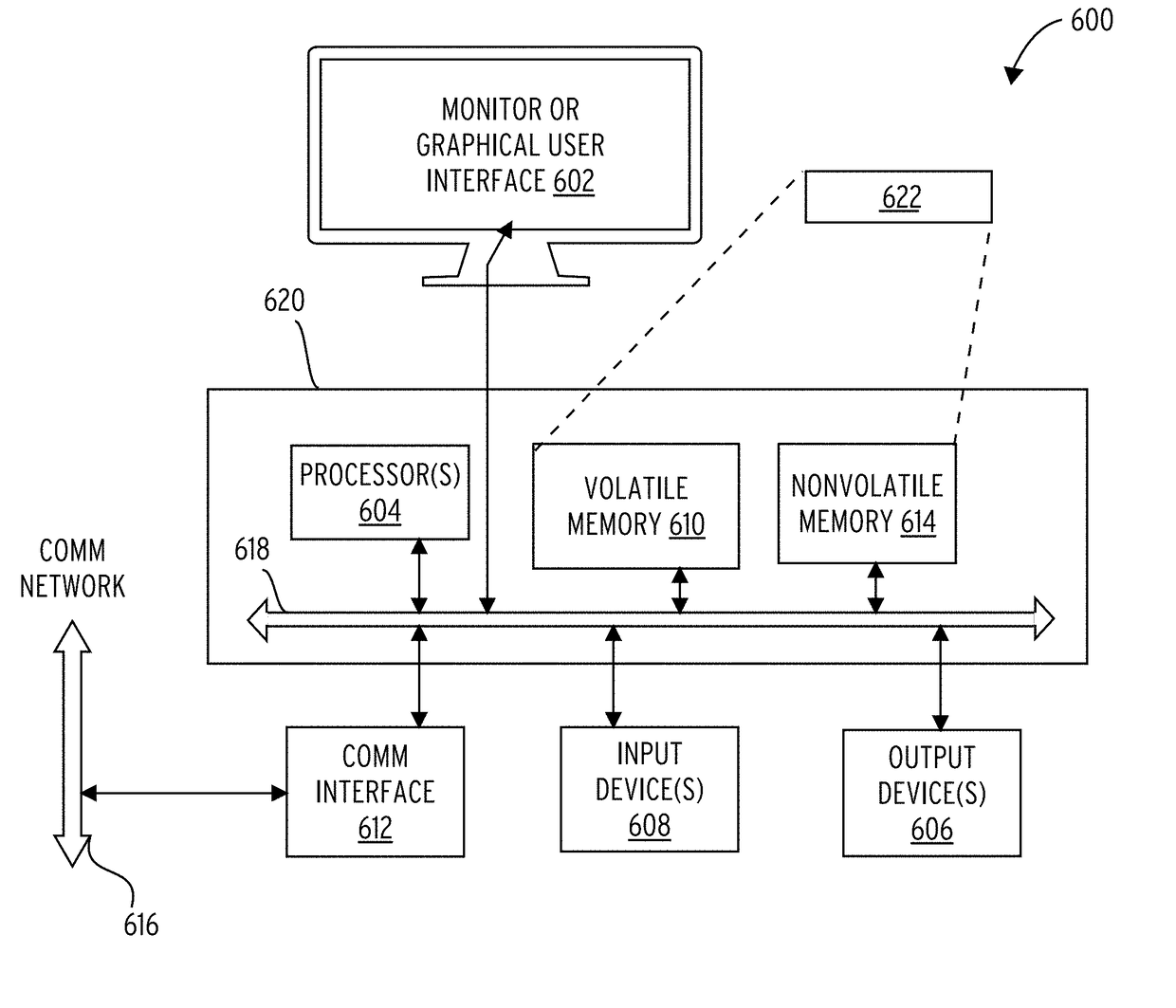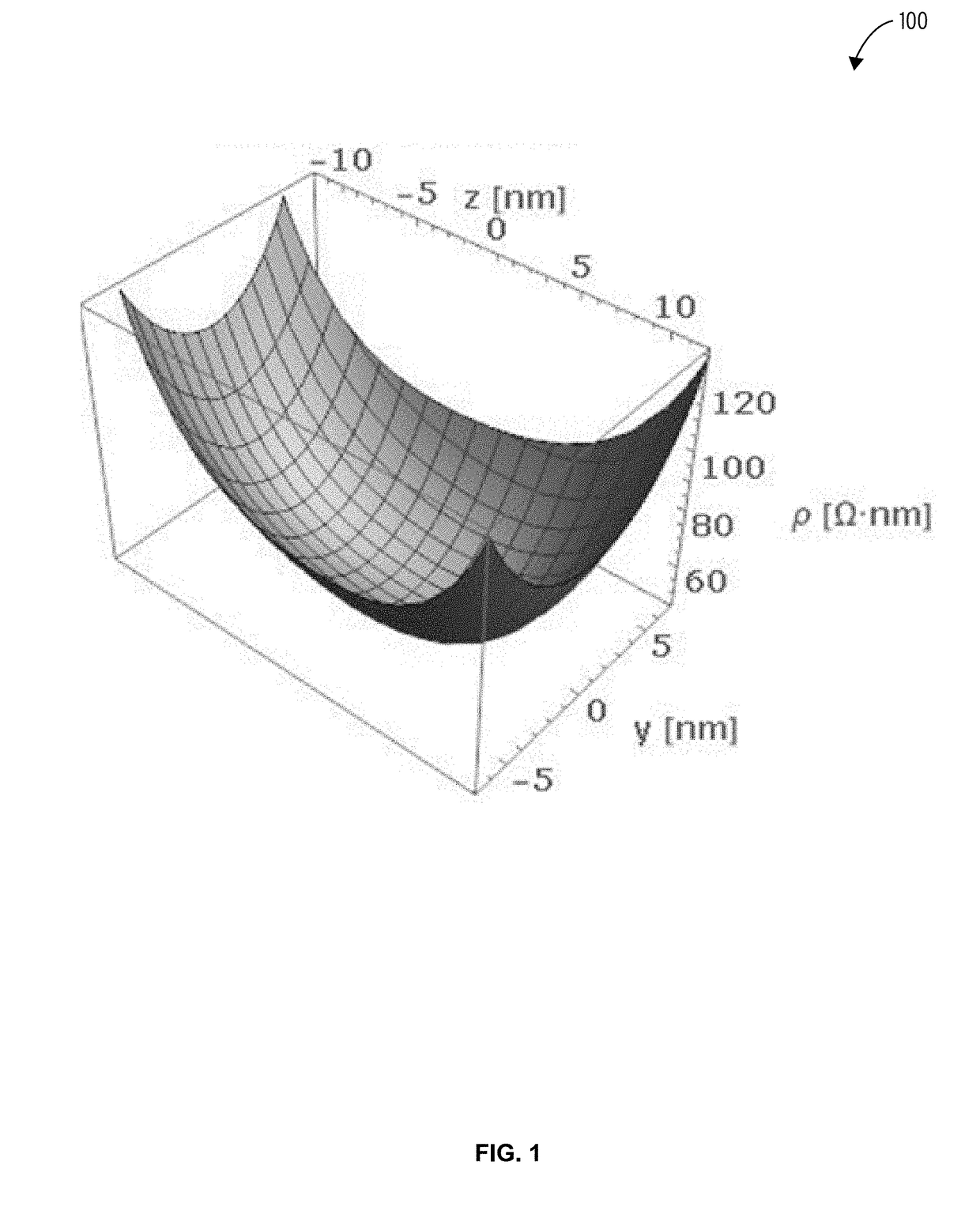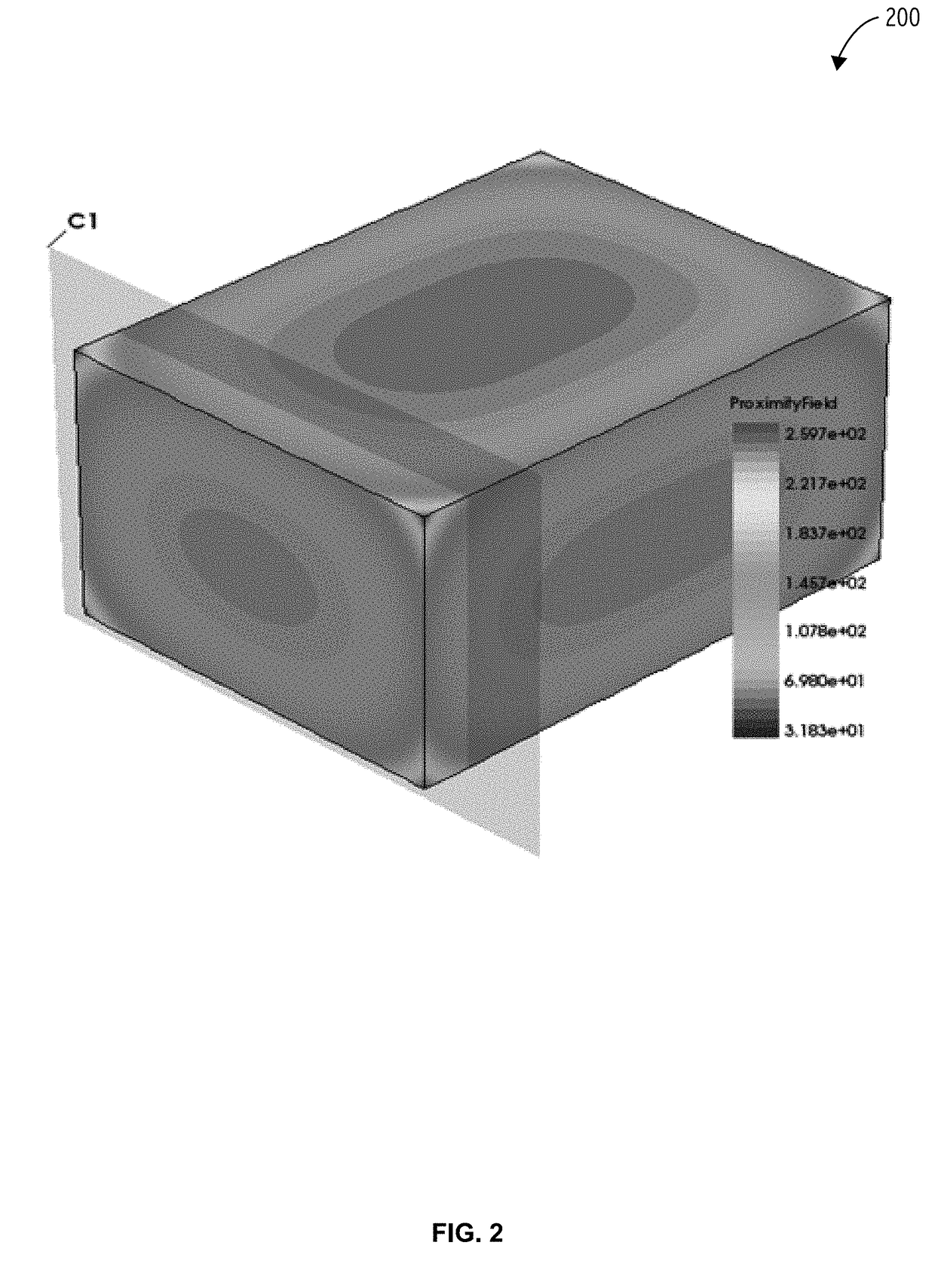Nano-wire resistance model
a resistance model and nanowire technology, applied in cad circuit design, cad techniques, instruments, etc., can solve the problems of increasing the delay of signal propagation through the wire, fewer such wires available, increasing the cost of ic manufacturing, etc., to improve the efficiency of design procedures, improve the performance of finished designs, and reduce processing resources
- Summary
- Abstract
- Description
- Claims
- Application Information
AI Technical Summary
Benefits of technology
Problems solved by technology
Method used
Image
Examples
Embodiment Construction
[0019]Various terminology is utilized herein, and should be interpreted according to its conventional meaning in the relevant arts, unless otherwise defined below:
[0020]“2D material strip” in this context refers to a length of material that includes fibers or strips that comprise essentially of one or more layers of doped or undoped “2D materials,” such as graphene, phosphorene (PH3) or MoS2 (molybdenum disulfide). A 2D material can be considered to be a material which tends to form strong bonds, such as covalent bonds, in planes with relatively weaker bonds, such as Van der Waals bonds, between the planes like graphene. Strips of 2D materials can be configured in ribbon form (single or multi-layer), nanotube form and woven form, for example.
[0021]“Computer model” in this context refers to the logic (e.g., algorithms and equations) that represent the behavior of the system being modeled. Computer simulation is the actual execution of logic comprising these equations or algorithms. S...
PUM
 Login to View More
Login to View More Abstract
Description
Claims
Application Information
 Login to View More
Login to View More - R&D
- Intellectual Property
- Life Sciences
- Materials
- Tech Scout
- Unparalleled Data Quality
- Higher Quality Content
- 60% Fewer Hallucinations
Browse by: Latest US Patents, China's latest patents, Technical Efficacy Thesaurus, Application Domain, Technology Topic, Popular Technical Reports.
© 2025 PatSnap. All rights reserved.Legal|Privacy policy|Modern Slavery Act Transparency Statement|Sitemap|About US| Contact US: help@patsnap.com



